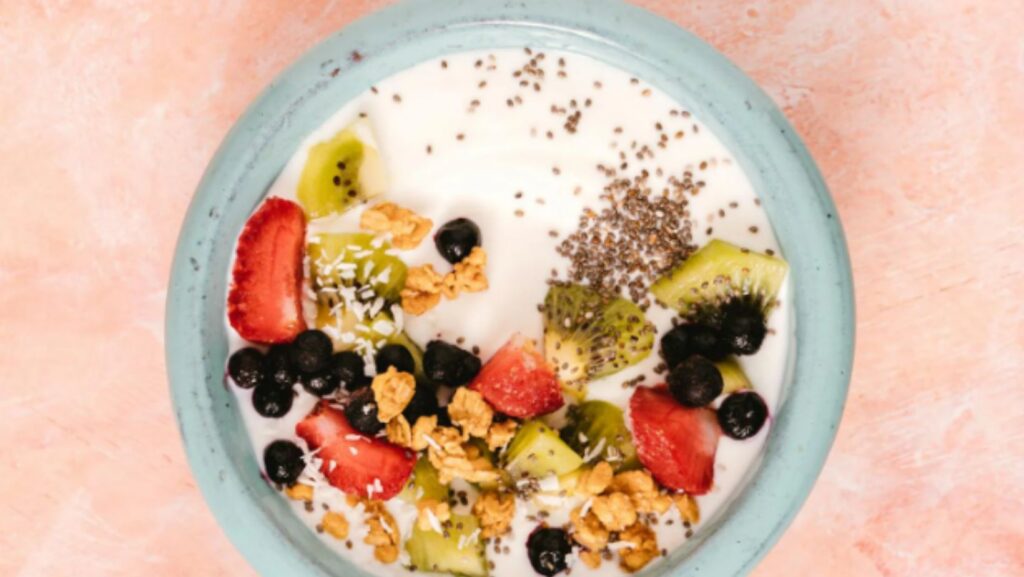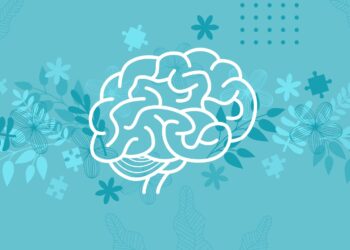A Dietitian Explains the Impact of Diet on Mental Health
Annette Snyder, MS, RD, CSOWM Certified Registered Dietitian at Top Nutrition Coaching says: Nutrition affects your mental health. We’ll look at the specific nutrients and habits that can help along with starting tips to improve your food choices.
Food and Mood: Exploring the Impact of Diet on Mental Health
Annette Snyder, MS, RD, CSOWM Certified Registered Dietitian at Top Nutrition Coaching says: Imagine hanging out with a few friends, maybe at a backyard barbecue. Look around: at least 1 of every 5 US adults (22.8% of us) is struggling with a mental illness. We now also have evidence that what you eat (or don’t) can improve your mental health. I invite you to join me in exploring how to support your mind and mood. We’ll start with what does, and doesn’t, support your mental well-being, and wrap up with some tips for boosting your own nutrition game.
Habits that Help your Mental Health (and Habits that Don’t)
Overall Diet
If the drive-thru is a frequent stop, you are likely taking in excess calories (maybe some protein) with not much else. You miss out on vitamins, minerals and natural compounds in whole plant foods that support nerve function, chemical messengers (like serotonin), and cognition/thinking.
- A poor diet—especially one that includes highly processed meats like hot dogs, fast food, sweet baked treats, and sugary drinks like soda—can lead to increased inflammation in the body. It can also raise the risk of depression, anxiety, and worsening chronic pain, particularly for those with inflammatory conditions like osteoarthritis, rheumatism, or fibromyalgia. These effects often start with subtle symptoms, such as side of foot pain, frequent migraines, bad breath, insomnia, or recurring allergies. While they may seem minor at first, these signs can point to an underlying or undiagnosed health issue

- Poor nutrition can harm your gut microbes, too.
- On the other hand, the Mediterranean Diet has been linked to positive changes in mood. Long-term studies have found protective effects on anxiety and mental stress. Mediterranean eating includes higher levels of anti-inflammatory fats, emphasizes plant foods and fish, and less red meat and added sugars.
Specific Compounds
Annette Snyder, MS, RD, CSOWM Certified Registered Dietitian at Top Nutrition Coaching recommends: Nutrients like zinc, B vitamins (including folic acid), Vitamin D, and omega-3 fatty acids have been reviewed for their promising benefits for mental health.
- Zinc: Low zinc levels have been linked to more severe depressive symptoms. Zinc helps manage the body’s stress response, and encourages the formation of new nerve cells. It helps make BDNF, a compound that keeps existing neurons (nerve cells) working, and promotes the growth and variety of new neurons and synapses (the spaces between nerve cells). BDNF helps with plasticity, or the brain’s ability to change structure and function to take in new information.
- Omega-3s: These are powerful—they keep synapses running smoothly, are anti-inflammatory, and they can prevent early cell death. These healthy fats can come from many sources, especially seafood, but if you’re looking for something with a truly distinctive flavor, this essential guide to uni explores how sea urchin combines unique taste with important nutrients. Caviar benefits include providing omega-3s and other nutrients that support brain function and mental health.
- B vitamins: B vitamins are involved in the normal function of nerve tissue. If folic acid (Vitamin B9) levels are low, adding it back may improve depressive symptoms.
- Vitamin D: Low Vitamin D levels have been linked with an increased risk of schizophrenia and depression. Low Vitamin D has been tied to irritability, fatigue, mood swings, sleep problems, and depression severity. Vitamin D itself helps with the plasticity of synapses and has a protective effect on the nervous system.
Gut Health
Annette Snyder, MS, RD, CSOWM Certified Registered Dietitian at Top Nutrition Coaching says: Gut microbes (bacteria, yeast, and other tiny organisms) are the drivers of many important processes in the body. We host over 1000 species!
- Probiotics are microbes that have specific actions in the body, like keeping digestion normal. They communicate and affect mental status via the body’s gut-brain axis (like an information superhighway). If you’ve ever noticed you get the urge to have a bowel movement when you’re nervous or anxious, that’s an example of the gut-brain axis working. We know stress can negatively affect the numbers and types of microbes, along with a low-nutrient diet. Bifidobacterium longum is a strain shown to reduce symptoms of anxiety and depression, and it can lower stress chemicals.

- Prebiotics are the food for the probiotics/microbes.Annette Snyder, MS, RD, CSOWM Certified Registered Dietitian at Top Nutrition Coaching explains: They can lower inflammation by changing the makeup of our gut microbes, and they give energy to the cells of the gut. Fun fact! Our microbes make GABA, serotonin, dopamine, and other messenger compounds that directly impact the nervous system. GABA blocks specific signals in the brain and spinal cord for a calming effect. It’s important for conditions like anxiety when nerve cells are extra active.
What to Eat For Better Gut Health and Mood
1. Whole Plant Foods
- Fruits & veggies: Include a fruit and vegetable daily (they all count) or add an extra serving daily. Add extra lettuce and tomatoes to a burger. Pair fresh cut fruit with dip. Add sliced berries to cereal. Use leftover cooked broccoli in scrambled eggs—or try fresh cold-pressed juices made with H400 batch juicing made simple for a quick and delicious way to boost your daily fruit and vegetable intake.
- Folic acid, a B vitamin, hangs out in dark green leafy veggies, beans, peanuts, sunflower seeds, fresh fruits, whole grains, eggs, and fortified cereals.
- Zinc is found in lentils, pumpkin seeds, fortified cereals, and whole grains like oats. (It’s also in oysters, crab, shrimp, sardines, and red meats.) Snack on some pumpkin seeds. Mix oats into smoothies. Add barley to vegetable soup.
- Whole grains for fiber, B vitamins, and zinc: sub in whole grain bread, pasta, or breakfast cereal for your usual choices. Switch out white rice for brown. Mix in fiber-rich pasta with some of the regular kind. Mix two kinds of cereal.
2. Omega-3s all Day
- Olive oil: This is a biggie. Extra-virgin olive oil is best. Use it for cooking or adding flavor to hot foods, cold salads, maybe the whole-grain pasta you’re eating now.

- Flax: Add ground flax seed to hot cereal, sprinkle on salads or soups, even mix into a pancake batter. Flax is rich in ALA omega-3 fatty acids and has very little taste. Keep a shaker of it handy in the kitchen!
- Fish: Add sardines to a pizza. Have a tuna salad sandwich for lunch.
3. Vitamin D
- Vitamin D isn’t naturally in many foods, but we also make some in our skin when exposed to sunlight. During winter months, people living further north get less quality sunlight and thus may have low levels of Vitamin D. Find it in egg yolks, cod liver oil, milk (it’s added), fatty fish like salmon or sardines (get omega-3s too), beef liver, and some mushrooms.
4. Probiotics and Prebiotics
- Probiotics
Include a probiotic source most days. For general wellness, it’s better to get probiotics from foods vs a supplement.
Food sources include sauerkraut, kimchi, miso, aged cheeses, yogurt, kefir, and kombucha.
Ideas: Switch out a pudding cup for yogurt. Blend kefir into a smoothie. Grate aged hard cheese (like Parmesan) on a salad or soup.
- Prebiotics
Prebiotics are unique plant fibers that act as food for your gut microbes. Examples of prebiotics include inulin and FOS.

Food sources include dandelion greens, Jerusalem artichokes, garlic, onions, and leeks, along with asparagus, bananas, barley, oats, apples, cocoa, flax seed, and wheat bran.
Ideas: Stir in ground flax with your oatmeal, pair with yogurt and a sliced apple on the side. Add frozen banana to a smoothie.
Sources
Miranda M, Morici JF, Zanoni MB, Bekinschtein P. Brain-Derived Neurotrophic Factor: A Key Molecule for Memory in the Healthy and the Pathological Brain. Front Cell Neurosci. 2019;13:363. Published 2019 Aug 7. doi:10.3389/fncel.2019.00363
Qin J, Kurt E, LBassi T, Sa L, Xie D. Biotechnological production of omega-3 fatty acids: current status and future perspectives. Front Microbiol. 2023;14:1280296. Published 2023 Nov 7. doi:10.3389/fmicb.2023.1280296
Fava M, Mischoulon D. Folate in depression: efficacy, safety, differences in formulations, and clinical issues. J Clin Psychiatry. 2009;70 Suppl 5:12-17. doi:10.4088/JCP.8157su1c.03
Grajek M, Krupa-Kotara K, Białek-Dratwa A, et al. Nutrition and mental health: A review of current knowledge about the impact of diet on mental health. Front Nutr. 2022;9:943998. Published 2022 Aug 22. doi:10.3389/fnut.2022.943998
Chen GQ, Peng CL, Lian Y, Wang BW, Chen PY, Wang GP. Association Between Dietary Inflammatory Index and Mental Health: A Systematic Review and Dose-Response Meta-Analysis. Front Nutr. 2021;8:662357. Published 2021 May 5. doi:10.3389/fnut.2021.662357
Tillery EE, Ellis KD, Threatt TB, Reyes HA, Plummer CS, Barney LR. The use of the ketogenic diet in the treatment of psychiatric disorders. Ment Health Clin. 2021;11(3):211-219. Published 2021 May 12. doi:10.9740/mhc.2021.05.211
Peirce JM, Alviña K. The role of inflammation and the gut microbiome in depression and anxiety. J Neurosci Res. 2019;97(10):1223-1241. doi:10.1002/jnr.24476
Mayer EA, Nance K, Chen S. The Gut-Brain Axis. Annu Rev Med. 2022;73:439-453. doi:10.1146/annurev-med-042320-014032














Discussion about this post